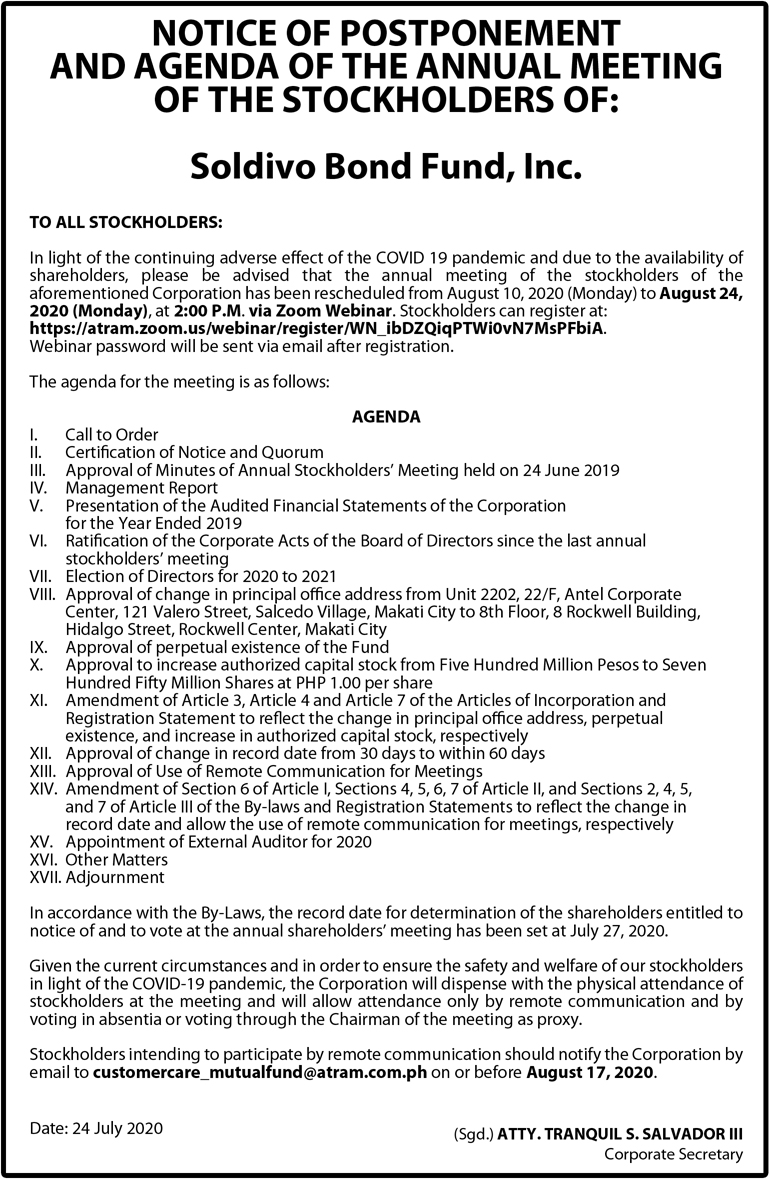By Arjay L. Balinbin, Reporter
INVESTOR sentiment towards Globe Telecom, Inc. and PLDT, Inc. is turning negative after President Rodrigo R. Duterte threatened to shut down the telecommunications giants if they fail to improve services by December, analysts said.
Shares in Globe and PLDT dropped by 3.4% and 3.6%, respectively, during intraday trading. Globe shares closed 0.50% lower, while PLDT shares were up 0.53% at the end of the session.
“We saw today that the President’s remarks during his fifth State of the Nation Address on Monday had a negative impact on sentiment towards the telco duopoly. This is both because of the regulatory risks brought by the expropriation threats from the President. Later on, within the trading day, there was a bargain-hunting that saved PLDT from negative territory while it trimmed Globe’s losses,” Philstocks Financial, Inc. Senior Research Analyst Japhet Louis O. Tantiangco told BusinessWorld in a phone interview on Tuesday.
In his State of the Nation Address on Monday, Mr. Duterte called out Ayala-owned Globe and Pangilinan-led PLDT for their “lousy” service.
“If you are not ready to improve, I might just as well close all of you,” the President said, threatening to seize the companies in favor of the government.
PLDT declined to comment, while Globe said in a statement it has allocated $1.2 billion as capital expenditure for this year to upgrade its network.
Mr. Duterte’s statement may have given a boost to new third player Dito Telecommunity Corp., a consortium of Davao-based businessman Dennis A. Uy’s two companies and China Telecommunications Corp. Shares in DITO CME Holdings Corp. surged 10.9% intraday but settled 3.38% higher.
“DITO CME benefited from the remarks of the President against the telecommunications firms,” Mr. Tantiangco said, noting that “if you take away the telecommunications firms from the industry, then there’s a possibility that it would be easy for Dito Telecommunity to dominate the whole industry, assuming that they will be able to rollout their commercial operations next year as planned.”
“Nonetheless, moving forward, this could be something that will weigh on investors’ sentiment towards the two telecommunications companies,” he added.
The President’s recent attack against PLDT and Globe is one of the things that will weigh upon the market, Mr. Tantiangco said.
Antonio A. Ligon, a law and business professor at De La Salle University, said the President’s statements against the two telco giants will force them to improve their services.
“The threatening part is not good because investors might think that if they participate, the President might also do the same thing to them… We are not a communist country, we are still a democratic country, so the proper procedures should be followed,” Mr. Ligon said.
Asked whether private companies like Globe and PLDT can be ordered shut by the government, Mr. Ligon said issues can be raised against them before the telecommunications industry regulator.
“But you don’t close them down because these are private entities with rights under the constitution… We should not welcome another telco player at the expense or prejudice of those existing ones… (but) because it’s good for competition,” he added.
In an e-mailed reply to questions, Michael Henry Ll. Yusingco, senior research fellow of the Ateneo Policy Center – Ateneo School of Government, said the telcos may “consolidate a strong legal defense against potential government action against them.”
“Keep in mind that we are already in the second half of the President’s term. His threats may not have the same punch as those made during the first half of his term,” Mr. Yusingco said.
Benvenuto N. Icamina, vice-president and chief operating officer at the Wallace Business Forum, said by telephone the President could be aware there are efforts initiated by the government and the private sector to speed up the rollout of cell sites across the country.
“PLDT has understanding with the government and signified its willingness to cooperate on what can be done to improve their services, and Globe issued a statement saying the matter is already being addressed by concerned parties,” he said.
Mr. Icamina noted there is already a memorandum circular signed by government agencies to streamline requirements and speed up the process for building shared telecommunication towers.
“So siguro parang pumapapel lang si Presidente when in fact mare-resolve na ’yung issue within a certain timeframe, maybe by December,” he said. “I know that he is saying that because he knows that is something that is going to happen soon, tapos sasabihin nya, oh kita mo because of me na-resolve?”
Adel A. Tamano, Dito Telecommunity chief administrative officer, said in a statement the company shares the concern of the President “for the need to provide world-class connectivity to the Filipino people, especially in the face of the pandemic.”
He said Dito is on track to meet the commercial rollout target slated for March 2021.
Hastings Holdings, Inc., a unit of PLDT Beneficial Trust Fund subsidiary MediaQuest Holdings, Inc., has a majority stake in BusinessWorld through the Philippine Star Group, which it controls.




